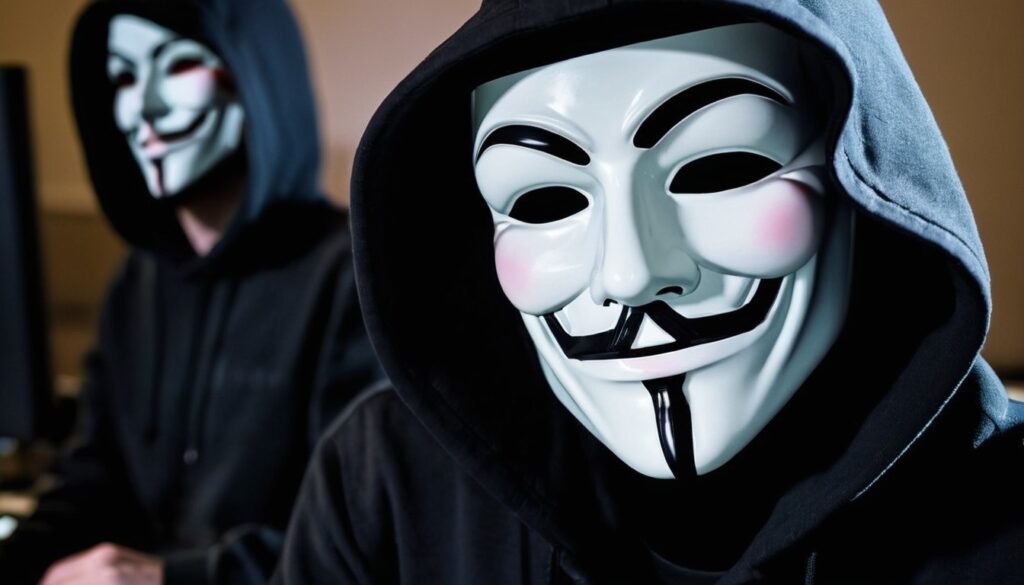“Is Anonymous a Hacker?” is a question that piques the curiosity of many as it delves into the enigmatic world of digital activism and cyber identity. Anonymous, often depicted with the iconic Guy Fawkes mask, is not a singular entity but a decentralized collective of individuals united by common goals, ideologies, and a shared ethos of freedom of information, transparency, and privacy. This article explores the multifaceted nature of Anonymous, its operations, the ethical and legal implications of its actions, and its place in the broader discourse on hacking and cyber activism.

Understanding Anonymous
Anonymous originated in the early 2000s on internet forums and imageboards like 4chan, where users could post anonymously. This anonymity allowed for a free exchange of ideas, unburdened by social status or identity. Over time, this collective of like-minded individuals began organizing and mobilizing around various social and political causes, leveraging their digital skills to make statements and enforce change.
The Hacker Ethos
To understand whether Anonymous is a hacker, one must first define what hacking entails. Hacking, in its broadest sense, refers to the act of exploiting weaknesses in a computer system or network. However, hacking is not solely malicious. The ethos of hacking revolves around the deep understanding of systems, creativity in problem-solving, and often, a desire to improve or fix what is broken. In this light, members of Anonymous who engage in digital intrusions could be considered hackers. Yet, it’s crucial to distinguish between criminal hacking (cybercrime) for personal gain and hacktivism, which seeks to promote political ends or social justice.
Operations and Impact
Anonymous has been associated with numerous high-profile cyber operations, often termed as “ops.” These operations target organizations, governments, and individuals that they perceive as corrupt, unjust, or oppressive. Notable campaigns have included operations against the Church of Scientology (Project Chanology), supporting the Arab Spring, and exposing child pornography sites. Through these actions, Anonymous aims to raise awareness, mobilize public opinion, and sometimes enforce vigilante justice or cyber retribution.
Ethical and Legal Considerations
The activities of Anonymous sit in a gray area of ethics and legality. On one hand, they’ve brought attention to critical issues, exposed wrongdoing, and supported causes that align with a broader public interest. On the other hand, their methods—such as Distributed Denial of Service (DDoS) attacks, hacking into private systems, and doxxing—raise significant legal and moral questions. These actions can infringe on privacy, disrupt services, and potentially cause harm, leading to debates over the justification and consequences of their tactics.
The Debate on Digital Vigilantism
Anonymous embodies a form of digital vigilantism, where individuals take the law into their own hands to correct or expose what they see as social injustices. This approach challenges traditional legal frameworks and raises questions about accountability, due process, and the balance between individual freedoms and collective security. While some view Anonymous as freedom fighters for the digital age, others criticize them for undermining the rule of law and potentially endangering innocent lives.
The Broader Context of Cyber Activism
Anonymous is part of a larger movement of cyber activism, where digital tools are used to effect social and political change. This movement includes a spectrum of actors, from individual whistleblowers to organized groups like WikiLeaks. These entities leverage the internet’s reach and the power of information to influence public discourse, policy, and governance, showcasing the evolving landscape of activism in the 21st century.
Conclusion
To categorize Anonymous merely as hackers would be an oversimplification. They are a complex amalgam of activists, technologists, and digital dissidents. Their actions, shrouded in anonymity and driven by a diverse set of ideals, have sparked significant debates about the nature of the internet, the right to information, and the ethics of digital intervention. While their legacy is contentious, the phenomenon of Anonymous underscores the transformative power of the internet as a tool for social change, highlighting the ongoing struggle for justice, transparency, and freedom in the digital realm.
In examining Anonymous, we confront the broader questions of our digital age: the balance between security and privacy, the ethics of digital direct action, and the role of the individual in shaping the digital commons. As the digital landscape continues to evolve, so too will the nature of activism and the ongoing discourse around the power, potential, and peril of those who inhabit the mysterious world of Anonymous.